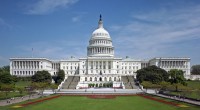Government, MIT Analyze Location Data For Spread of Virus
March 31, 2020
During the coronavirus pandemic, the U.S. federal government, via the Centers for Disease Control and Prevention, state and local governments, is receiving analyses of people’s movements — based on location data from millions of mobile phones — in “certain areas of geographic interest.” The data, provided by the mobile advertising industry, is being used to understand how such movements may be impacting the spread of coronavirus. MIT researchers are also debuting a project to track COVID-19 patients via a phone app.
The Wall Street Journal reports that the goal is to create “a portal for federal, state and local officials that contains geolocation data in what could be as many as 500 cities across the U.S. … to help plan the epidemic response.” An “ad hoc coalition of tech companies and data providers” are responsible for the analyses, and the data is stripped of “identifying information.”

It reveals “which retail establishments, parks and other public spaces are still drawing crowds that could risk accelerating the transmission of the virus,” said sources. For example, it showed that “New Yorkers were congregating in large numbers in Brooklyn’s Prospect Park,” and local authorities were alerted; it “can also reveal general levels of compliance with stay-at-home or shelter-in-place orders.”
The use of mobile phone data raises the concerns of privacy advocates such as researcher Wolfie Christl, who called the current project “covidwashing.” “In the light of the emerging disaster, it may be appropriate to make use of aggregate analytics based on consumer data in some cases, even if data is being gathered secretly or illegally by companies,” he said. “As true anonymization of location data is nearly impossible, strong legal safeguards are mandatory.”
San Francisco-based LotaData created a public portal “analyzing movement patterns within Italy that could help authorities plan for outbreaks and plans additional portals for Spain, California and New York.” Uncast debuted a public “social distancing scoreboard” that uses location data to “evaluate localities on how well their population is doing at following stay-at-home orders,” and Foursquare Labs “said it is in discussions with numerous state and local governments about use of its data.”
Elsewhere, WSJ reports on MIT’s research project, which requires everyone (with and without COVID-19) to “voluntarily download an app [dubbed Private Kit] to their phones.” Researchers are currently “working with the U.S. Department of Health and Human Services and have had several conversations with the White House … [and] are in negotiations for backing from the World Health Organization about how the technology should be deployed.” The data is scrambled so as not to identify individuals.
The MIT research group is aggregating as much data as possible in collaboration with “big tech companies and large healthcare systems, such as the Mayo Clinic and … Ernst & Young.” Several Facebook engineers, led by Ramesh Raskar, are donating their time to the project, whose success depends on “amassing a large number of participants.” Mayo Clinic cardiologist Suraj Kapa, who is working on the project, noted that the app could lead to a “a much more curated lockdown to include very specific places of business and very specific areas to reduce the economic impact.”

No Comments Yet
You can be the first to comment!
Sorry, comments for this entry are closed at this time.